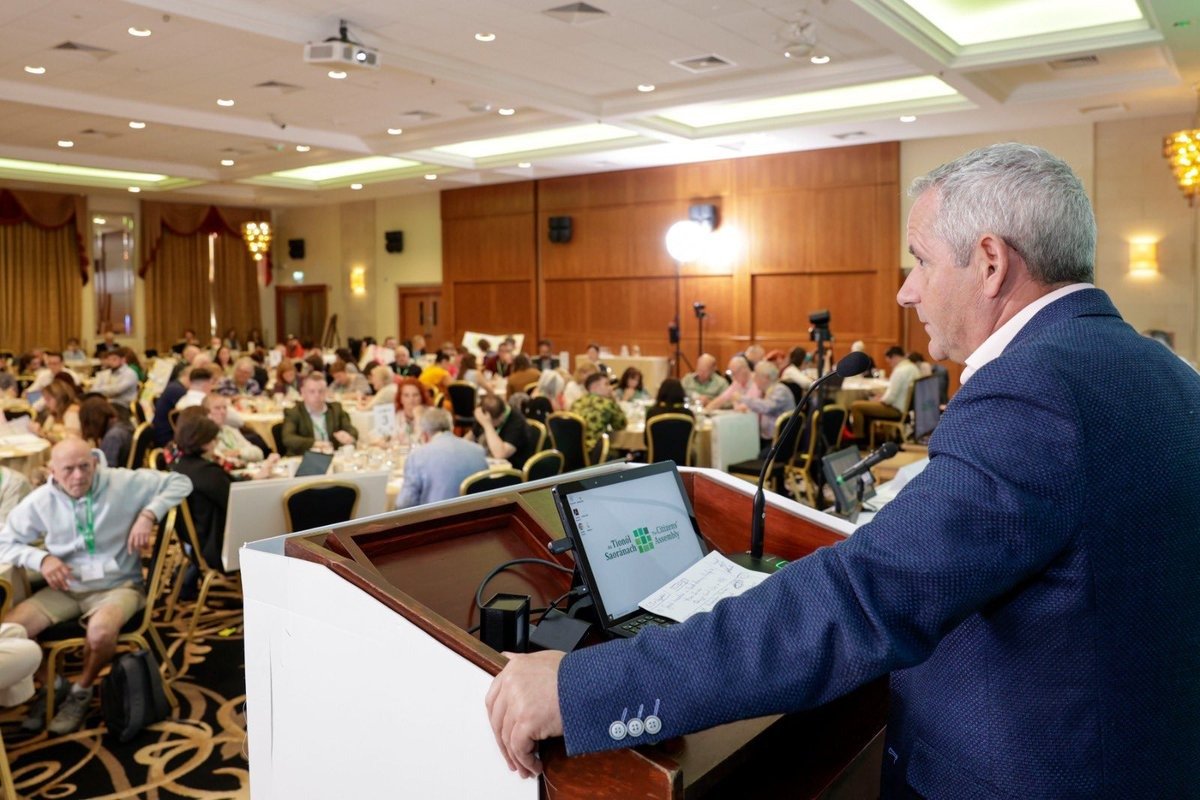‘Cruel but necessary’ - lunatic Garda drug policy?
A reflection on September 2nd’s Citizens Assembly on Drugs.
Cian McGrath
Last Saturday’s Citizen Assembly on Drugs featured several radical and timely interventions aiming to contribute to a holistic approach to the relationship between addiction, poverty, deprivation and class. Unfortunately, it was the scatter-brained, ignorant contributions from members of An Garda Siochana that continued to receive the most coverage.
“Cruel, but effective”. That is what former head of the garda drugs squad Michael O’Sullivan described the Irish system as, in his impassioned defence of the status quo. It begs the question: what is criminalisation of drug users effective at? It certainly has not been effective at tackling drug abuse and addiction. The merit of giving credence to a department of AGS whose existence is predicated on the criminalisation of drug possession and use is unclear, but we were left in no doubt as to the cloud cuckoo land in which the State’s current approach calls home.
O’Sullivan, when directly challenging calls for decriminalisation described Ireland’s drug problem as being a product of ‘criminal lunatics’ who are ‘completely different’ and that the only approach worthy of taking was one which relied on ‘fear’ of gardai and courts to keep people ‘on the straight and narrow’. O’Sullivan supported these claims by saying ‘there are tens of thousands of people who don’t use drugs… very often it is the fear of the courts or the fear of the guards’, before categorising those who do not hold such a fear as ‘chaotic individuals’. O’Sullivan almost seems to revel in the cruelty he was charged with imposing.
The forward by the former Garda is not backed up by any data or statistics, rather he appears to just be expressing how he feels we should act. According to the contribution from Ashling Golden from the Solas Project, while 18-24 year olds make up just 9% of the Irish population, they make up 20% of the prison population, with the drugs trade being the number one reason for youth imprisonment. The Solas project works directly with young people, including those in prison to support them and help to rehabilitate them away from the trauma of addiction or involvement in the drug trade.
Golden explained in her presentation that ‘we are simply not going to scare young people into not taking drugs. We are not going to arrest our way to removing drugs from our streets.”. Her perspective was extremely compelling given her experience of working with those most vulnerable, as she said that drug gangs are winning and young people are paying the price.
It is not an exaggeration to say that, the State, just as drug gangs, are viewing young people as expendable ‘collateral damage’ ways in their operations. Seeing no value in rehabilitation, or dismissing those involved as ‘chaotic individuals’, is just accepting and entrenching the stigma and exclusion caused by time spent in prison. Drug gangs are exploiting deprivation, poverty and trauma experienced in working class communities and the imposition of fear of courts or gardai will not offer a tonic.
Golden’s contribution concluded with a strong alternative to the heavy handed policing currently employed, saying that the current approach has been in place for forty years, directly contributing to the problem necessitating a citizens assembly. Golden and Solas called for the State to;
recognise the relationship between an 18 year old in prison and the wider societal inequality
promote education, harm reduction and safe alternatives
have programmes in the prisons engaging with young people caught up in the drugs trade to explore viable exit strategies
remove drugs charges from criminal proceedings
fund addiction alternatives
This is also echoed by many on the left, such as People Before Profit who campaign for decriminalisation and a shift towards a more holistic approach to drugs control. Gino Kenny, PBP TD, was quick to respond to the contribution from Michael O’Sullivan, tweeting “The real lunacy is a system that for six decades hasn’t worked. Criminal gangs are a by-product of that continuum of lunacy.” In 2021 an article in Rupture put forward the case for decriminalisation clearly, concluding to say:
“What should our immediate demands be? At an absolute minimum, we want to see the decriminalisation of all drugs for personal use, the release of all non-violent drug offenders serving prison sentences and for any drug offences for personal use to be removed from criminal records. We want free drug rehabilitation facilities and an education campaign that helps people understand why drug use is so common and how we can reduce it.”
You can read more here to understand the case for decriminalisation here, in 2022 another article in Rupture went further and argued we should push for for full socialist legalisation:
“The calls for decriminalisation are not enough, as they continue to leave those who use drugs at risk. We need to seriously consider legalisation and move away from the moralistic standpoint of “drugs are bad” versus the liberal “free the weed”. The need for legalisation of all substances is not because drugs are safe, but rather to remove the power from drug gangs. The market should be regulated and people protected. Drugs should also not be commodified through capitalism. A socialist approach to legalisation is the only means of ensuring all of the above – drug users will never be safe under capitalism. We need drugs to be safe, free, and legal. Only then will we see improvements for people who use drugs - fewer deaths, fewer overdoses, and a system better able to support those who need it.”.
If you have thoughts, consider writing a reply to continue this discussion and debate on what the left should say.


